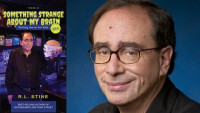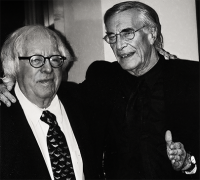Writing from the heart
By Anne Jones
firstwriter.com – Tuesday July 27, 2010
She’s one of Britain’s best-selling authors and a respected complimentary healer, but Anne Jones’ journey into the literary world has not been easy. In the last of a series of articles for firstwriter.com, she examines the importance of writing from the heart.
“I know I have a book in me somewhere”. How many times have I heard those words, often after the third glass of Shiraz between the starter and main when I have shared my interest in writing to whoever will listen. At this point the conversation often dwindles as a faraway look shows a distant vision playing out as the would-be author collects their Booker prize! Sometimes they have a real interest and start to bombard me with questions on how to actually find that hidden book and get it published.
In my view your passion will take you a long way down the line as it is the most important ingredient and driving force to get you over the many hurdles awaiting along the path to reach publication.
Firstly you need to choose your subject. Whether you write fiction or nonfiction, choose your subject with care and select something you know really well. Of course, you can investigate and research for background to build your story but the basis and flow of your book will come across stronger if you know your subject well. This is particularly true of your first book which will act as a training process.
Always write with passion; when you write from the heart the force and energy behind your words will come through to your reader, hopefully lighting a similar fire within them too. Greg Mortenson’s book Three Cups of Tea describes his quest to build schools for girls in Northern Pakistan and Afghanistan. I could feel his passion and commitment radiating from every page and his words have inspired me to greater efforts with my own charity work in Africa. How exciting it is to read books that light our fire! You can achieve this through memoirs, documentaries, guides or novels as long as you share your feelings either directly or through your
characters.
An added advantage is that you accomplish much in a short time when you write with passion and from your heart. This is almost like channelling the content from your bank of experience onto paper. All my books have been based on this premise and I can write a book in weeks once I get started.
Once you have chosen your subject you are off the starting block, you just have to get writing. The journey will not be easy – that is for sure – but here are some ways that you can bring your heart into your work which can make it an enjoyable and rewarding experience with, hopefully, a successful outcome.
Nonfiction
Write from your heart
- Be honest – even if this goes against you. People warm to you if you put yourself down a little, so share your mistakes as well as successes. Open up and give a little of yourself and share your inner feelings when you can.
- Whenever it’s appropriate, give examples of your experiences and other people’s stories or anecdotes as case studies. This will give your book authenticity. Readers love to hear of other people going through similar challenges to their own and gain inspiration when they read how they have overcome or managed them.
Some tips on style
- Full pages of uninterrupted text can be daunting so break it up into manageable sized bites with subheadings and include illustrations or pictures if you can. In Greg Mortenson’s second book, Stones for Schools, he included photographs of many of the characters and school locations, and he included a number of maps of the region, this made it easy to empathise with the people and their achievements.
- Writing in the first person gives a stronger message. My books are guides for self development so I use “YOU” to create a bond and connection by speaking directly to my reader.
- Keep your descriptions and explanations simple without being patronising. Nobody wants to wade through pages of complex and difficult to understand prose to get a message. Visualise your reader and hold them in your mind as you write. I think of my step daughter and my sister in law and direct all my explanations to them.
- Before you start you will need a detailed synopsis and plan – otherwise, take it from me, you will be into rewrites. Publishers like chapters of more or less the same size. I make a note of the case studies and main features for each chapter – this preparation definitely makes the writing so much easier.
Fiction
- Try to set your story in a location that you know well otherwise you may lose validity. It is hard to keep a sense of reality when the story line moves to a foreign location and descriptions often just do not ring true. I have just read a book by Harlan Coban who I rate highly as a writer and story teller, however, the book lost its authenticity with his cockney speak and he misused slang and local idioms e.g. when describing London taxis he referred to hansom cabs rather than black cabs. Be careful of clichés with local landmarks, e.g. referring to the Eiffel Tower or Tower of London, so be more subtle. Even if you have memories of your story location you will find it an advantage to visit the setting to refresh your knowledge and feel for the place. My novel is based in Egypt and although I have travelled the Nile twice I am going again this summer to ensure I “get it right”.
- You need to do a lot of preparation before you start. Characters need full life stories even though you may not need all the information it will help to bring the character to life in your own mind.
- The more detailed your synopsis the easier it will be to write the first draft. I prepared my novel with a scene by scene run through just as though I was watching a movie. This helped me get a feel of the movement of the story.
- In your first run through or draft I wouldn’t worry about the details of punctuation or choosing the exact word for this will slow down and disrupt the flow of your story. Get it down and revise and edit it afterwards.
Never be daunted or feel that no one would be interested in your story – if it’s well written with passion and verve it stands a good chance of getting into print and even if you cannot find an agent or publisher you can self publish and leave a legacy – a bit of you in print – for your grandchildren!
About the Author
Anne Jones is the author of five bestselling books including Heal Yourself, Healing Negative Energies, The Ripple Effect, Opening Your Heart, and The Soul Connection. For more information about Anne and her titles, go to www.annejones.org




 R.L. Stine says writing from your heart is overrated
R.L. Stine says writing from your heart is overrated Winning writing competitions
Winning writing competitions The Best Writing Advice Changes Everything
The Best Writing Advice Changes Everything 11 Writing Tips From Joan Didion, Because She Knows A Thing Or Two About It
11 Writing Tips From Joan Didion, Because She Knows A Thing Or Two About It Writing a first novel is like wandering out into an unclear, inhospitable landscape
Writing a first novel is like wandering out into an unclear, inhospitable landscape The one line that's missing from all the writing advice
The one line that's missing from all the writing advice Ray Bradbury On Writing and Writers
Ray Bradbury On Writing and Writers 3 Simple Tips on Writing the First 5 Pages of Your Sci-Fi/Fantasy Novel
3 Simple Tips on Writing the First 5 Pages of Your Sci-Fi/Fantasy Novel 5 Pieces of Terrible Writing Advice You Should Totally Ignore
5 Pieces of Terrible Writing Advice You Should Totally Ignore Lisa Gardner: 10 Lessons I Learned in 30 Years of Suspense Writing
Lisa Gardner: 10 Lessons I Learned in 30 Years of Suspense Writing Why do books have chapters? How writing changed from antiquity to children's books and streaming
Why do books have chapters? How writing changed from antiquity to children's books and streaming What we learned about... non-fiction writing
What we learned about... non-fiction writing How Mindfulness Can Transform Your Writing Life
How Mindfulness Can Transform Your Writing Life Pete Kalu’s top tips for writing non-cliched multicultural characters
Pete Kalu’s top tips for writing non-cliched multicultural characters Why are men so bad at writing sex scenes?
Why are men so bad at writing sex scenes? What I learned from writing over 800,000 words in two years
What I learned from writing over 800,000 words in two years What Has Surprised You About The Writing Life? Intriguing Answers From Acclaimed Authors
What Has Surprised You About The Writing Life? Intriguing Answers From Acclaimed Authors What Writing His First Novel Taught Author Ted Bell About Writing His Ninth Novel
What Writing His First Novel Taught Author Ted Bell About Writing His Ninth Novel New magazine announced for writers and readers in Wales
New magazine announced for writers and readers in Wales Launching Discoveries 2025
Launching Discoveries 2025 Rachel Richardson launches the Rich Lit literary rights agency
Rachel Richardson launches the Rich Lit literary rights agency Bridport Prize Memoir Award 2024 competition nears deadline
Bridport Prize Memoir Award 2024 competition nears deadline Spread the Word relaunches London Writers Awards for 2025-2027
Spread the Word relaunches London Writers Awards for 2025-2027 This Online Writing Platform Wants Budding Authors to Plot an Elaborate Murder
This Online Writing Platform Wants Budding Authors to Plot an Elaborate Murder Authors report 'worst ever delays' with advances and royalties as some forced to survive on loans — survey
Authors report 'worst ever delays' with advances and royalties as some forced to survive on loans — survey New Literary Agent Listing: Maria Napolitano
New Literary Agent Listing: Maria Napolitano New Publisher Listing: Cherry Lake Publishing Group
New Publisher Listing: Cherry Lake Publishing Group Unwin Awards submissions open in inaugural year
Unwin Awards submissions open in inaugural year Black Crow Books: new horror publisher aims to open up 'booming' genre to everyone
Black Crow Books: new horror publisher aims to open up 'booming' genre to everyone Sebes & Bisseling hires four new agents as part of major expansion
Sebes & Bisseling hires four new agents as part of major expansion New Literary Agent Listing: Jessica Leeke
New Literary Agent Listing: Jessica Leeke Agatha Christie’s holiday home set to host new writing workshops
Agatha Christie’s holiday home set to host new writing workshops A M Heath reveals plans for 'significant growth' with key promotions
A M Heath reveals plans for 'significant growth' with key promotions
